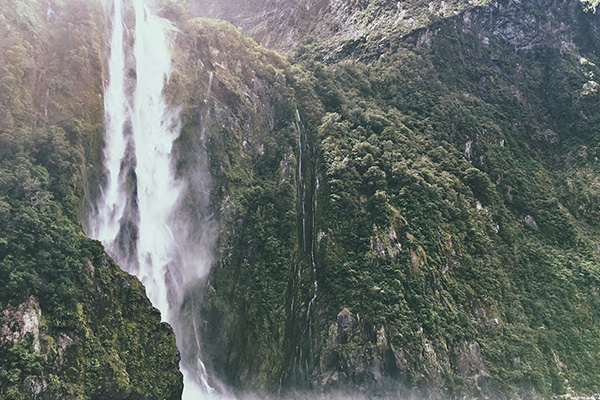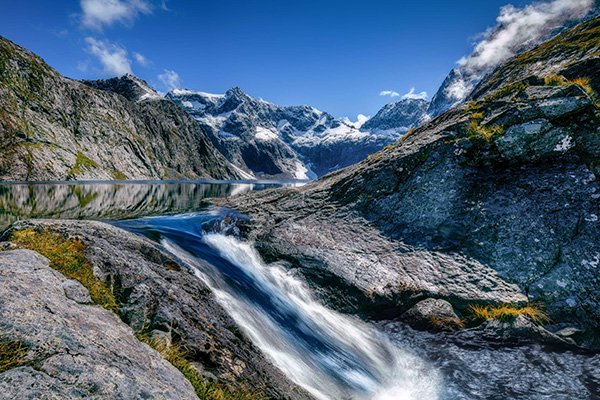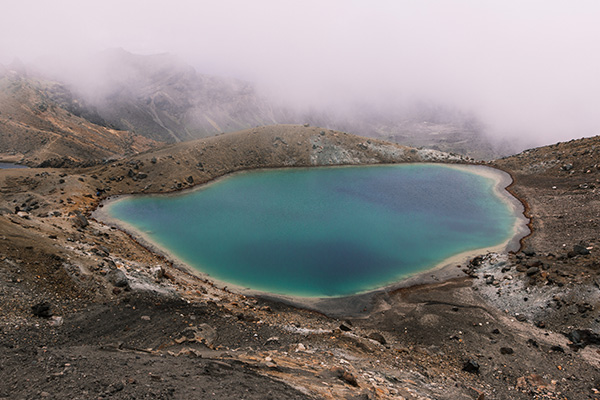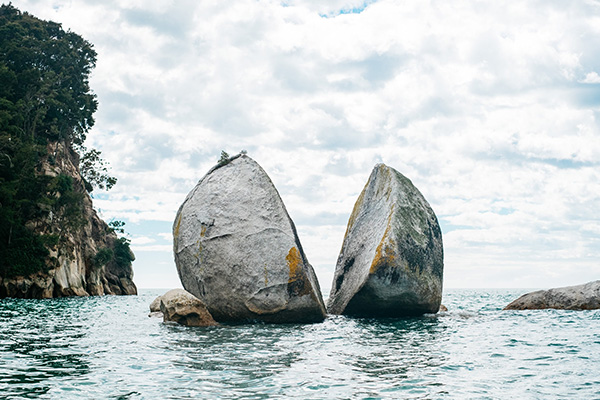Moving ToNew Zealand
Points of Interest

MILFORD SOUND

FIORDLAND NATIONAL PARK

TONGARIRO NATIONAL PARK

ABEL TASMAN NATIONAL PARK
HISTORY
The history of New Zealand dates back at least 700 years to when it was discovered and settled by Polynesians, who developed a distinct Māori culture centred on kinship links and land. The first European explorer to sight New Zealand was Dutch navigator Abel Tasman on 13 December 1642. The Dutch were also the first non-natives to explore and chart New Zealand’s coastline. Captain James Cook, who reached New Zealand in October 1769 on the first of his three voyages, was the first European explorer to circumnavigate and map New Zealand. From the late 18th century, the country was regularly visited by explorers and other sailors, missionaries, traders and adventurers. In 1840 the Treaty of Waitangi was signed between the British Crown and various Māori chiefs, bringing New Zealand into the British Empire and giving Māori the same rights as British subjects. There was extensive British settlement throughout the rest of the century and into the early part of the next century. War and the imposition of a European economic and legal system led to most of New Zealand’s land passing from Māori to Pākehā (European) ownership, and most Māori subsequently became impoverished.
ECONOMY
The economy of New Zealand is the 53rd-largest national economy in the world measured by nominal gross domestic product (GDP) and 68th-largest in the world measured by purchasing power parity (PPP). It is one of the most globalised economies and depends greatly on international trade, mainly with Australia, the European Union, the United States, China, South Korea, Japan and Canada. The Closer Economic Relations agreement with Australia means that New Zealand’s economy is closely aligned with the Australian economy.
Government & Politics
New Zealand is a constitutional monarchy with a parliamentary democracy, although its constitution is not codified. Elizabeth II is the Queen of New Zealand and the head of state. The Queen is represented by the Governor-General, whom she appoints on the advice of the Prime Minister (Jacinda Ardern). The Governor-General can exercise the Crown’s prerogative powers, such as reviewing cases of injustice and making appointments of ministers, ambassadors and other key public officials, and in rare situations, the reserve powers (e.g. the power to dissolve Parliament or refuse the Royal Assent of a bill into law). The powers of the Queen and the Governor-General are limited by constitutional constraints and they cannot normally be exercised without the advice of ministers.
Geography
New Zealand is an island country located in the south-western Pacific Ocean, near the centre of the water hemisphere. It is long and narrow country. The two largest islands are the North Island and the South Island, separated by the Cook Strait; a third, less substantial island, Stewart Island, is located 30 kilometres (19 mi) off the tip of the South Island across Foveaux Strait. Other smaller islands include Waiheke Island, Chatham Island, Great Barrier Island and more, although many are uninhabited. New Zealand’s varied landscape has appeared in television series, such as Xena: Warrior Princess. An increasing number of movies have also been filmed there, including the Lord of the Rings trilogy.
Start your journey today!
Culture

Arts
New Zealand art consists of the visual and plastic arts (including architecture, woodwork, textiles, and ceramics) originating from New Zealand. It comes from different traditions: indigenous Māori art, that of the early European (or Pākehā) settlers, and later immigrants from Pacific, Asian, and European countries.

Media
Most outlets are foreign-owned, with media conglomerates like New Zealand Media and Entertainment, Fairfax New Zealand, MediaWorks New Zealand and Sky TV dominating the media landscape. Most media organisations operate Auckland-based newsrooms with Parliamentary Press Gallery reporters and international media partners, but most broadcast programmes, music and syndicated columns are imported from the United States and United Kingdom.

Cuisine
The national cuisine has been described as Pacific Rim, incorporating the native Māori cuisine and diverse culinary traditions introduced by settlers and immigrants from Europe, Polynesia and Asia. New Zealand yields produce from land and sea—most crops and livestock, such as maize, potatoes and pigs, were gradually introduced by the early European settlers.[349] Distinctive ingredients or dishes include lamb, salmon, kōura (crayfish), dredge oysters, whitebait, pāua (abalone), mussels, scallops, pipis and tuatua (both are types of New Zealand shellfish), kūmara (sweet potato), kiwifruit, tamarillo and pavlova (considered a national dish). A hāngi is a traditional Māori method of cooking food using heated rocks buried in a pit oven. After European colonisation, Māori began cooking with pots and ovens and the hāngi was used less frequently, although it is still used for formal occasions such as tangihanga.

Sports & Recreations
Sport in New Zealand largely reflects its British colonial heritage, with some of the most popular sports being rugby union, rugby league, cricket, football (soccer) basketball and netball which are primarily played in Commonwealth countries. New Zealand is a small nation but has enjoyed success in many sports, notably rugby union (considered the national sport), rugby league, cricket (considered the national summer sport), America’s Cup sailing, world championship and Olympics events and motorsport and softball.
Other popular sports include golf, hockey, tennis, cycling, rowing, and a variety of water sports, particularly sailing and surf sports. Winter sports such as skiing and snowboarding are also popular as are indoor and outdoor bowls. Skateboarding is enjoyed amongst a small portion of the youth.
















